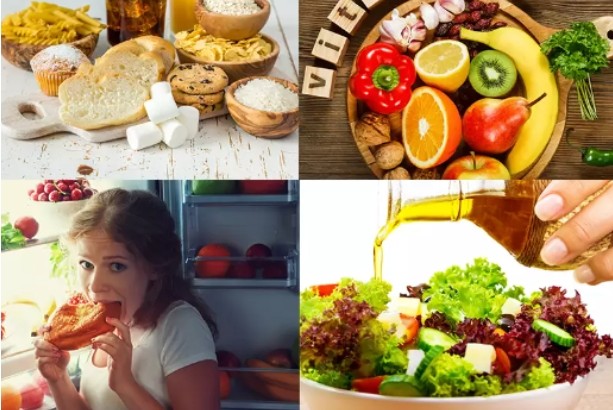10. These Food and Nourishment Myths You
Don't Need to Believe
AVERTISEMENT Don't believe the lies about healthy eating habits. If you are able to recognize the facts, you will have a healthier body as well as a calm mind. Although nutrition is controversial, many health professionals agree that healthy eating can be achieved.
No matter how much data you cut and dice, you should eat a healthy, balanced diet that includes lots of whole grains, legumes and beans. You also need nuts and water. David L. Katz MD is a deterrent medicine specialist who coauthored How to Eat. Here are the answers to all your food-related questions.
Katz is a doctor. Katz is also the founder Yale the Yale-Griffin Research Centre in Derby, Connecticut. Katz claims that there is no need for a second nutrition guide (like Katz's). There is still confusion. persists. We will help you to understand the most popular myths regarding bottled packaged goods, so you can eat better beginning today.
1. "Low-Carb" Means "Grain-Free".
Carbohydrates are high-quality processed foods like chips, crackers and bread, as well as breakfast cereals such crackers and bread. These are packaged foods in bottled containers. Katz says that this category includes fruits and vegetables, legumes and beans, as well as other plant-based food items, which Katz claims are high in fiber and nutrients.
2. Avoid carbohydrate (they are dangerous).
Abbey Sharp, a Toronto Dietitian who is also the author of The Mindful Glow Cookbook says that consuming low-fiber, unsalted carbohydrates (whole fruits, legumes) can help lower your risk of developing chronic diseases. consuming vegetables, grains, and legumes can reduce the risk of developing chronic diseases. The Mindful Glow Cookbook. The Lancet published a series review and meta-analyses on January 1, 2019, which confirms this idea. Sharp said, "Stop worrying so much about carbs.
3. Breakfast is the most important meal in the day.
Katz claims that there is nothing special about the feast. Katz. The first meal of the morning is breakfast. It doesn't have to be eaten at the same time as other meals. If you don't feel hungry, you can take a break and go on to lunch.
4. You should not eat too much.
Snacking can help curb hunger pangs and can even reduce your calorie intake. Katz suggests healthy snacks like carrots, apples, and walnuts as well as hummus and bean dip. The high-processed vending machines foods can spike your blood sugar and then drop it.
5. Always try new foods.
Sharp says that frozen vegetables and fruits can sometimes be more nutritious than fresh. Sharp Frozen produce is usually frozen at peak ripeness. Fresh produce is sometimes picked before it is ripe. According to a study published in The Journal of Food Composition and Analysis at the end of June, fresh produce may lose its nutritional value when transported into stores.
6. Always eat local food.
Locally grown foods are important. Katz states that the main goal is to eat more fruits and vegetables seven, even though they may be far away.
7. Organic Produce is better than conventional.
Organic food is more affordable than conventional food. According to a September study by the British Journal of Nutrition, organic produce has lower levels of chemical residues than traditional produce. You can purchase conventional food to reduce pesticide residues. Eat more fruits and vegetables.
8. It is important to detoxify or reset.
Organs like skin, liver, and kidneys are important because the body depends on them to clean itself naturally. Sharp is in agreement. Penetrating: "You don’t need to spend a lot to improve your health.
9. Avoid Gluten.
Gluten is a protein that can be easily made in wheat, rice and barleycorn, according to the Celiac Sickness Foundation. Celiac Disease Foundation states that carbs should be avoided. Carbs can be found in wheat, rice and barley.
Katz says that almost everyone can eat these foods with no problems. Research in Digestion revealed that 86% of those who believed they were allergic could eat gluten-free foods as of May 2015. Gluten-containing foods such as whole grains can be cooked if you don't have gluten sensitization or celiac disease.
10. You can find improved low-fat options.
Avoiding fat will result in the greatest nutritional loss. Low-fat foods can cause injury. Sharp states that substitutes for fat are often higher in sodium and sugar than the original to compensate for loss of taste. They are therefore not as healthy. Sharp.



